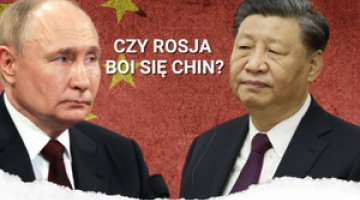Ukraine: new wartime legislation
On 15 March, the Ukrainian parliament passed a number of laws regulating the functioning of the state during the war; these included an extension of martial law until 25 April and a rise in the defence budget. The powers of the police were also expanded, equating them with the powers of the Territorial Defence, and the manpower of the State Border Guard Service was expanded from 53,000 to 60,000 officers. In turn, President Volodymyr Zelensky signed two laws: on criminal liability for collaboration with Russia (punishable by up to 15 years’ imprisonment) and on counteracting Russian propaganda. During the period of martial law, a number of changes to the tax and budget law have also been introduced. For self-employed persons and small enterprises, payment of taxes is to be voluntary, and for companies with an annual turnover of up to 10 billion hryvnia (US$340 million), a flat tax rate will apply (2% of turnover), and these companies will be exempted from income tax and VAT. In order to reduce fuel prices, excise tax has been abolished and VAT was reduced from 20% to 7%. In addition, the gas extraction tax has been increased in a link to its price on the European market. The current rates (14% for wells deeper than 5 km, and 29% for shallower depths) will apply if the price of gas is between US$150 and US$400 per 1000 m³; if it exceeds this ceiling, then the tax will rise to between 31% and 65%. The government’s powers with regard to changes in budget expenditure were also expanded.
Commentary
• The adoption of this package of legislation regulating the functioning of the state during the period of armed conflict shows that, despite the Russian aggression, the Ukrainian system of government remains operational, and that the president, parliament and legislature are continuing to fulfil their tasks. The adoption of 20 out of the 21 acts by constitutional majorities of over 300 votes demonstrates the considerable consensus among the political elite and their common resistance to the enemy, regardless of their previous divisions and rivalries. It sends an important signal to the Ukrainian public and the international environment, confirming the durability and efficiency of the political institutions, as well as their resistance to demoralisation in the face of attacks.
• From the point of view of strengthening public resistance, the most important acts are those introducing criminal liability for cooperation with the occupiers. By virtue of the first, On introducing changes to other legal acts to guarantee criminal liability for collaborative activities, a new category of crime has been introduced into the Criminal Code of Ukraine, that of collaborative activity. A penalty of 10 to 15 years’ imprisonment has been introduced for cooperation with the aggressor state, the occupation administration and/or its armed and paramilitary formations, as well as for expressing views justifying the Russian attack. The second act, On establishing the liability of persons engaged in collaborative activity, states that such persons will be deprived of the right to hold any positions in central and local government administration, and their property will be confiscated. Both legal acts are preventive in nature: on the one hand, they indicate to citizens that cooperation with the occupiers will be ruthlessly punished, and collaborators will be deprived of their right to participate in public and social life; on the other, they are intended to motivate the population to help the investigative organs in identifying people who support the Russians or their associates.
• The adoption of the regulations on counteracting propaganda shows that the legislature has attached great importance to neutralising the Russian media message. It is now forbidden to spread any messages supporting Russian propaganda, under the threat of closing down any media which violate the law, or of banning political, social and religious organisations which do not comply from operating. This applies to denying the attack on Ukraine or recognising the conflict in Donbas as a civil war, and to calls for a change in the constitutional order, or for Ukraine’s sovereignty or territorial integrity to be violated. If this law is applied consistently, it will make it possible to remove pro-Russian circles from the domestic political scene. It could also affect the activity of the clergy of the Orthodox Church of the Moscow Patriarchate.
• In connection with the ongoing Russian aggression, the authorities are trying to increase the state’s defence potential. Equating the competences of the police officers with the powers of the soldiers of the territorial defence forces means the creation of another formation which can carry out combat tasks. The specialised police units’ responsibilities will include the removal of explosives and the supervision of POWs. The number of positions in the State Border Service will be increased by 7000, in order to facilitate the evacuation of civilians abroad and boost the staffing of the border with Belarus. In turn, the rise in defence spending has been made possible thanks to Britain’s consent to allocate part of the loan to develop the Ukrainian Navy for this purpose. The loan was originally granted as part of an agreement ratified in January 2022 for the purchase, repair and modernisation of weapons and military equipment, as well as for equipping volunteer units.
• The changes introduced to the tax law will significantly simplify the process of running a business, and are intended to revitalise Ukrainian enterprises. According to estimates from the President’s Office, 50% of them have suspended their activities, and a survey conducted by the European Business Association shows that 24% of companies do not have any reserve funds, 22% have reserves for just one month, and 32% for several months. The tax breaks should help to postpone mass bankruptcies, which could lead to a significant increase in unemployment. However, these changes will also cause a decline in budget revenues (which will be exacerbated by the abolition of excise duty on fuels). Considering the critical situation which the country is in, the government will to a large extent finance these expenditures from Western monetary support, as well as the foreign exchange reserves which the National Bank of Ukraine still possesses.





